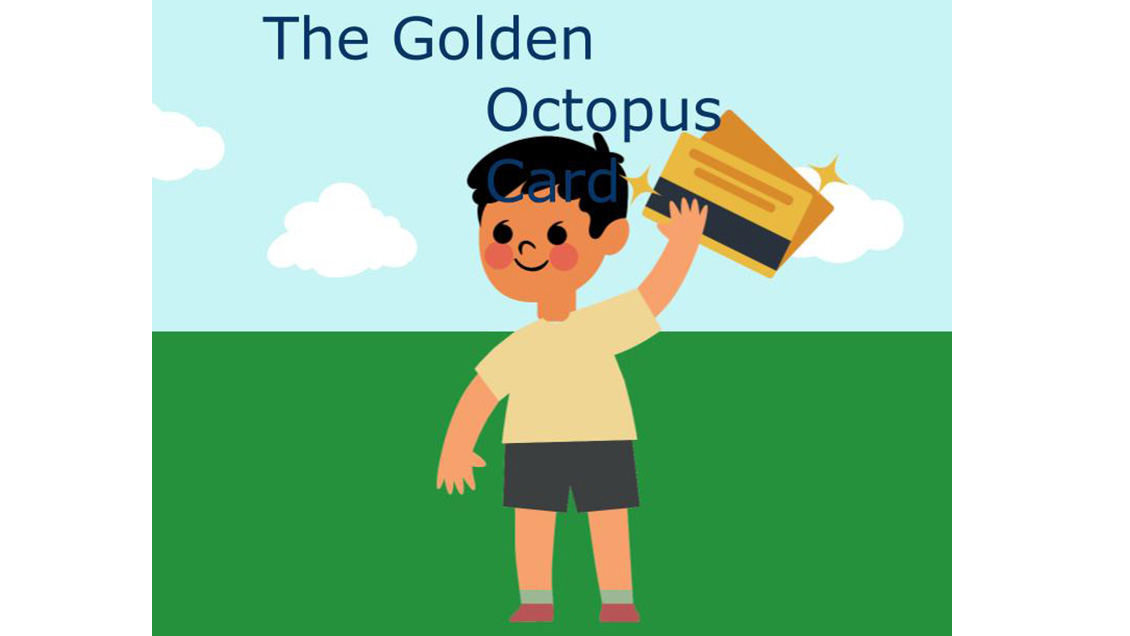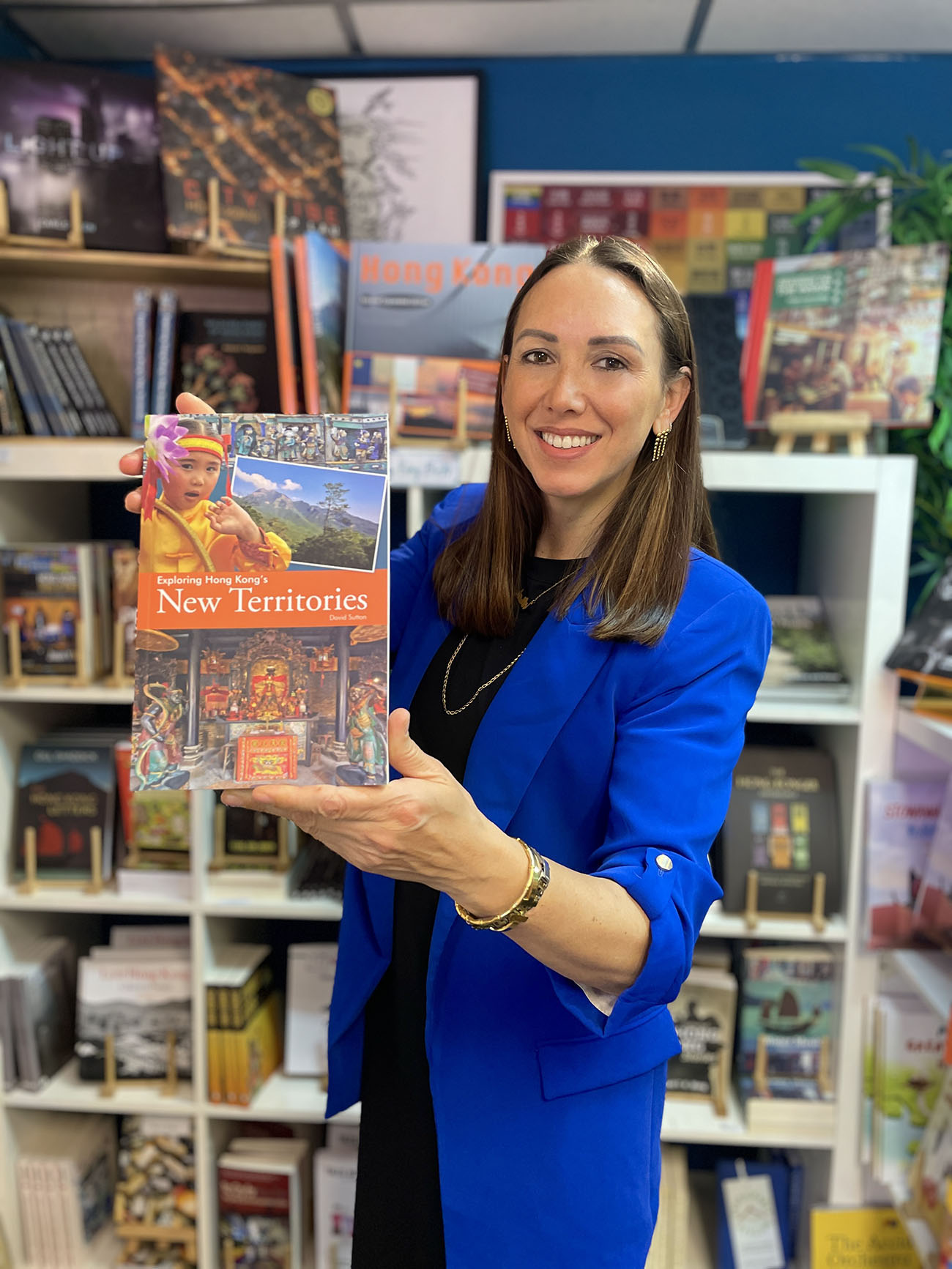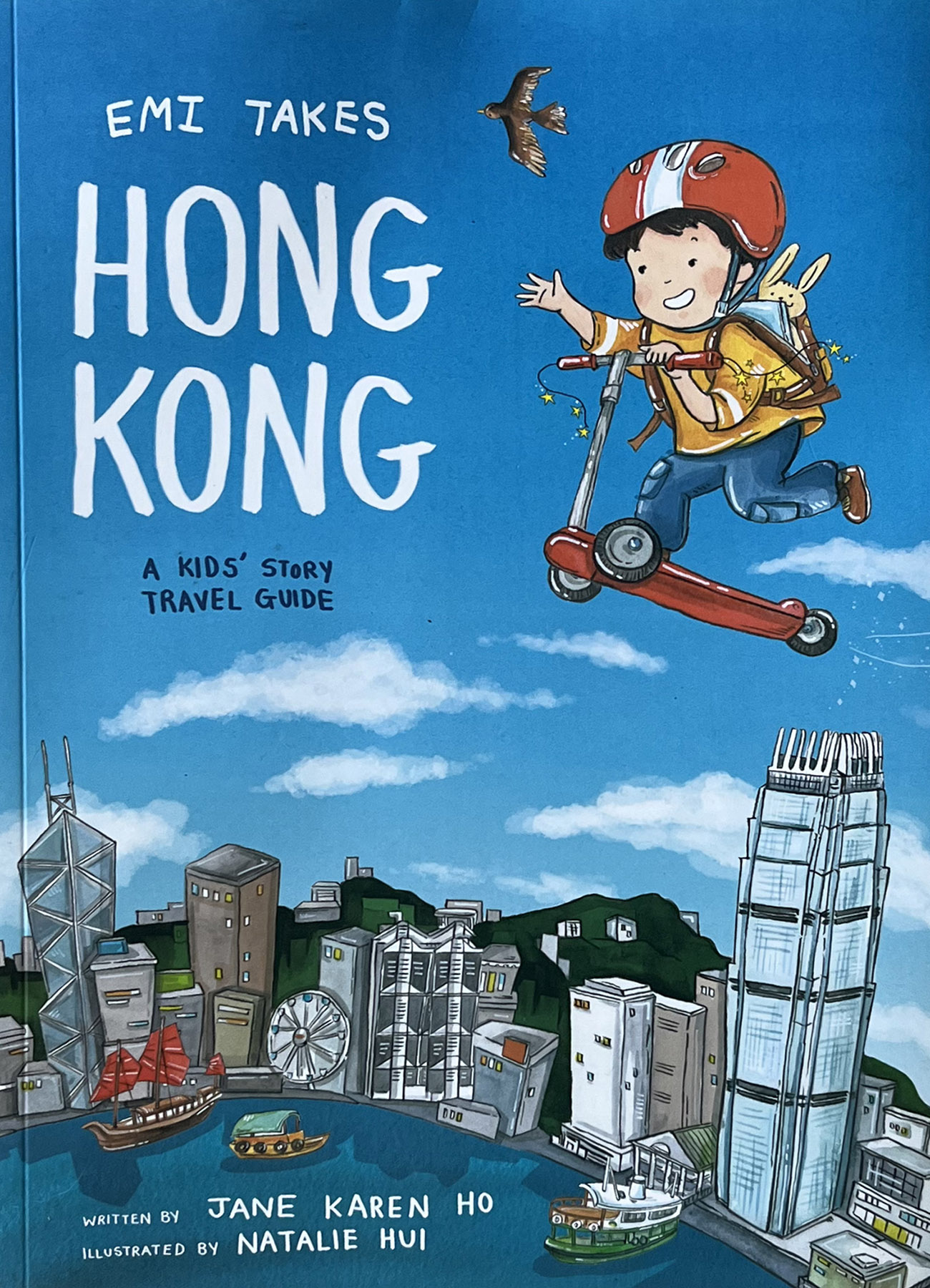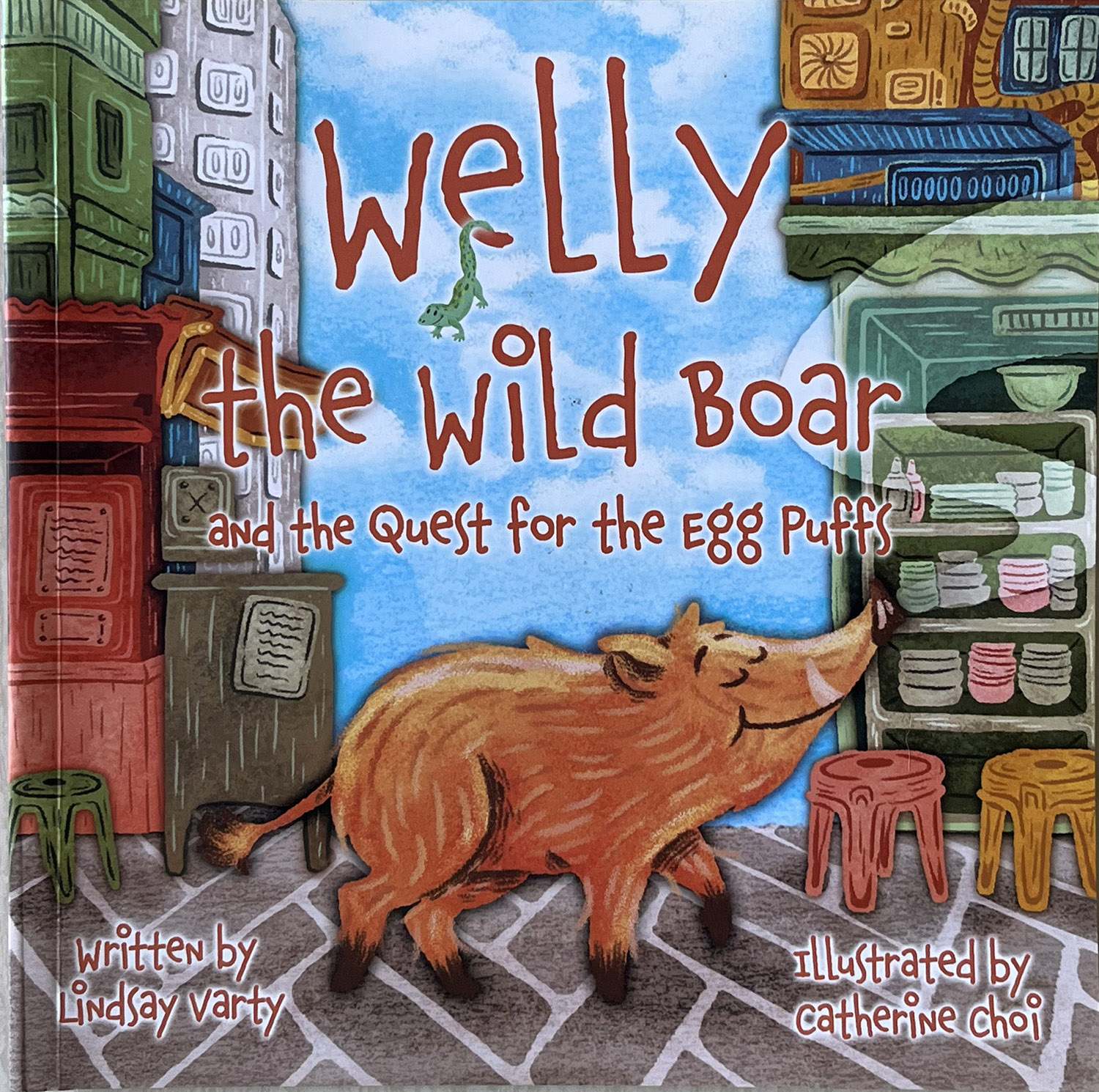How can Hong Kong’s primary school children develop a habit of reading and improve their English if they do not see themselves in the stories they read? Joyce Yip says though the supply is far less than the desirable level, there are in fact plenty of resources to fall back on.

A year ago, staff members of the Chatteris Educational Foundation were busy trying to design new English storybooks with a Hong Kong angle. The books were targeted particularly at less-privileged students with limited access to reading materials at a time when schools remained closed for the summer holidays.
The Chatteris team came up with a series of heartwarming tales with a distinct Hong Kong flavor. The Golden Octopus, for example, is a story about a boy who finds a magical commute pass that can teleport him around the city. The book also comes with an audio recording.
The project was conceived by Ben Weetman, the CEO of Chatteris — a Hong Kong-based charity dedicated to helping the city’s young learners develop their English-language skills. The company recruits tutors from around the world to teach English in Hong Kong schools where a majority of the students come from less-privileged backgrounds.
A close scrutiny of the English-language books in Hong Kong’s school libraries made Weetman realize that most of them had nothing to do with the local culture. He had also noticed that young readers — including children of English-speaking expatriate parents — often drew a blank when they came across words like “backyard” or “chimney”. “Hong Kong students sit up and pay more attention to stories that are connected to the city they know and live in, engaging more wholeheartedly. Such connections happen when they see themselves in the books and feel proud. From an educational standpoint, this is incredibly important,” Weetman says.


Relatable content
It is no secret that cultivating the habit of reading helps children make sense of the world and brush up their language skills. It also fosters sociocultural values in young minds and stimulates conversation. Most importantly, reading nurtures the reader’s imagination by offering a window into worlds beyond their own and a mirror reflecting their reality. Studies have shown that children respond well to characters of race, gender and abilities similar to their own. Finding such characters represented in the books they read validates their own experiences.
But could relatable content help foster a genuine love of reading in young people?
“Absolutely,” says Jack Weetman, a former English teacher with the Hong Kong Education Bureau (EDB) and brother of the Chatteris CEO. He says the inclusion of local and relatable elements in storybooks is particularly useful to children who are less imaginative and at the beginner level of learning the English language.

“I remember reading a story involving a house with a garden. One of the kids asked, ‘What is a garden?’ There are green spaces in Hong Kong, obviously, but the idea of having a garden in one’s backyard is so alien here,” explains Jack Weetman. When there is such a huge disconnect between the reading material and a young reader’s own reality, they “immediately lose their engagement with the plot,” he says. “In Hong Kong schools, the main point of having children read stories in English is for them to improve their language skills. If they don’t understand what’s going on, they will never pick up the vocabulary.”
In the late 2000s, the EDB rolled out a series of books with recognizable Hong Kong elements — The Hong Kong Science Museum, the Citybus fleet, skyscrapers in Central, pink dolphins, and the Cheung Chau Bun Festival, to name but a few — for primary school children. Designed with the aim of “developing lower primary students’ interest in reading stories”, according to a 2018 EDB news release, the books have proved to be valuable teaching aids for Jack Weetman. He believes students began taking a more active interest in his class once they were exposed to these books. “I saw a big difference in my students when they started reading stories that had a link to the things they knew about,” he says. “Even if it’s a location they haven’t been to, they’ve seen it on TV. These are the connectors that get them interested in the story, and also in reading and learning more.”


Nothing beats a good story
In 2015, Dutch author Corinne Duyvis started the #OwnVoices campaign, advocating wider readership for literature with a focus on marginalized writers writing about their own experiences. Since then, books that were earlier considered as niche have gained more visibility, thanks partly to the focus on cultural minorities in social media, says Kathleen Ahrens, a professor at the Hong Kong Polytechnic University’s Department of English and Communication and contributor to the academic series Emergent Literacy: Children’s books from 0 to 3.
Ahrens describes #OwnVoices as a campaign for “telling a specific story that speaks to universal themes and appeals to the universal human experience, whether the reader is from a dominant or nondominant culture. These are stories worth being told.”
Her personal view is that the setting of a book matters less than some of the other hallmarks of good storytelling when it comes to engaging a young reader’s attention. These include accessible themes, captivating illustrations, good overall design, narrative hooks, as well as the presence of positive characters who serve as good role models. Children are capable of connecting with stories in ways “that adults will never see”, she adds.

Nostalgia trip
Mary Chan, founder of MCCM Creations, says that books with a Hong Kong setting published by her company are a hit with people who have left the city recently, including those who used the British National (Overseas) migration pathway to settle in the UK. She says that for many of them, these books serve as mementos of a home they have left behind.
Chan believes readers today care more for local themes and cultural references compared with 20 years ago, when she started her business. Even 10 years ago, people “didn’t read books on Hong Kong by Hong Kong authors,” she says. “It was very hard to sell them.”
“We didn’t get many manuscripts that had a direct relevance to Hong Kong. People nowadays have a stronger connection to their homes, and this is a good sign.” Before 2010, MCCM Creations had published only one book set in Hong Kong — Home from Home, a family’s tale of moving to their new home in Discovery Bay.
Today there is considerable interest in MCCM’s titles set in Hong Kong — which cater to both children from the English-speaking expatriate and Chinese families. Chan believes that from the market perspective such books are still seen as niche, something of a novelty compared to books that speak to a global market. Hence it is highly unlikely that stories about the Hong Kong experience can ever enjoy a visibility or readership that is comparable to the Gruffalo series or the Very Hungry Caterpillar series.

Untapped market
Claire Yates, founder of the Lion Rock Press bookstore, however, thinks that though Hong Kong-themed English books for young readers sounds rather niche, the category represents an untapped market. At her Sheung Wan boutique outlet, some of the MCCM titles for children are stacked next to more of the kind. They include stories about wild boars that go in search of egg waffles, children discovering dim sum via grandparents, and trips to the Kowloon Walled City — all quintessentially Hong Kong experiences.
Yates started her company — which also sells Hong Kong-themed souvenirs and stationery — in 2013. It’s a passion project, started with the goal of helping the children of expats — including her own two British-Eurasian mixed-heritage daughters — to “better understand their adopted home and their place in it”. Since the beginning, she has made it a point to stock only books by local authors, though the going hasn’t been particularly easy.
Her best-sellers, up until now, are Billy the Cavalier and Friends — which tells the story of a dog’s daring feat atop Victoria Peak — and Emi Takes Hong Kong, about a girl going on a tour of the city’s notable landmarks on a scooter and having a series of adventures along the way. The last one has been flying off the shelves since 2021, when Yates did a joint campaign with a YouTuber specializing in parenting advice.
Yates says she isn’t sure if mainstream publishers are aware of the extent of popularity a book like Emi Takes Hong Kong enjoys. “It’s definitely a niche that’s overlooked,” she says, pointing out that besides inspiring a love of reading, such books also help inculcate a love of one’s hometown in young readers.
“The more you know about something, the more you want to protect it — whether it’s the city’s heritage, nature or language. These books open a whole new world of curiosities and conversation points that are important for the future generation, some of whom are going to represent Hong Kong on a global stage,” Yates says.
Her only complaint is that almost all such titles published so far tell stories set in an upper-middle-class milieu on Hong Kong Island. She believes that the reason behind such a trend is that these books are often self-published by authors who belong in the same class.

What parents can do
Books alone aren’t enough to provide a growing child with a well-rounded experience of life. Jack Weetman suggests that parents take their children on field trips to complement the knowledge they absorb from reading. “I think it’s pretty disgusting when teachers and parents are reluctant to take children on field trips, especially seeing that getting around is so convenient in Hong Kong,” he says. He also encourages parents to join their children in family-oriented activities, in order to contribute to the all-around development of the latter. Simple acts of parents reading bedtime stories to their children and figuring out the meaning of an unfamiliar word together could go a long way.
Also, there are a number of free resources to make use of in Hong Kong, the city’s public libraries being one. The EDB’s Space Town Go! program, for instance, is an online resource platform that provides young readers with storybooks in both readable and audio formats, plus recording options to help them brush up their pronunciation.
Jack Weetman says the audio component makes a huge difference to children whose parents do not speak English. “Even if the parents don’t speak English at all, they can just push a button on the computer or phone, and the story will be read to them,” he says. “There are so many free resources out there. All it takes is commitment from the adults to make sure that the kids are using them.”


